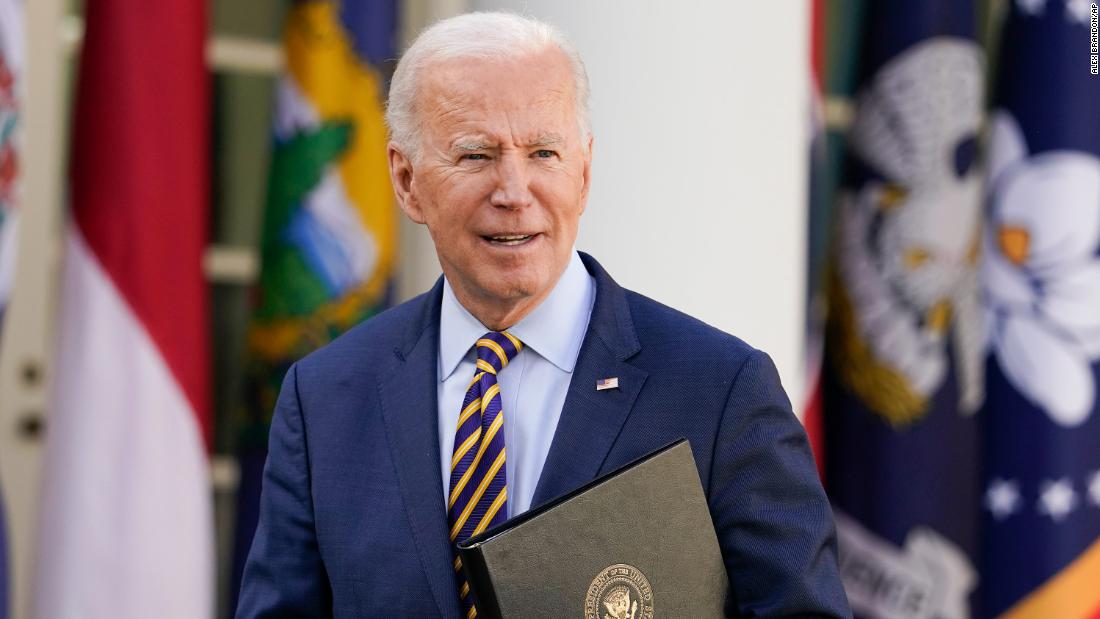
This fits with the average polling, which almost universally shows more than 60% of Americans approved of the package.
What's the point: You don't need to do a lot of hoop jumping to see how passing a popular piece of legislation could help the Democrats electorally. It also can't hurt Democrats that the bill was universally opposed by Republican members of Congress.
So what the heck is the GOP seeing to make them come out against such a popular bill? Sometimes electoral math isn't straight forward. Something can be popular without having major ramifications.
For this relief package, let's start with the fact that it's not clear that improving the economy is at the top of their minds. Remember, we just had an election where the candidate who was more trusted on the economy (Donald Trump) lost.
Just 16% of Americans now say the economy is one of the nation's most important problems, according to Gallup. That's one of the lowest measures for economic importance in the past decade.
By comparison, 86% of Americans said the economy was a top problem in 2009 when a new Democratic president and Democratic Congress passed a stimulus.
This makes sense because the "real unemployment" rate stands at 11% right now. Such a rate isn't low, though it's far lower than it was during Barack Obama's first term in office, when it never dipped below 14%. The real unemployment rate, which includes the underemployed, the marginally attached and discouraged workers, was 15% in February 2009, when the Democratic stimulus passed that year.
Democrats, of course, will argue that this stimulus is part of the larger effort to fight the effects of the coronavirus, which continues to rank as the nation's most important problem. Democrats may end up winning that battle, although it's far from guaranteed.
Further, most Americans don't necessarily believe the bill will help people like them a great deal. Just 23% of Americans said it would. That compares with 27% who said the bill wouldn't help them at all. Among registered voters the gap is even wider, with 20% saying the bill would help them a great deal and 29% believing it wouldn't.
When you add in those who said the bill would help them some or not much, the gap stood at 52% help some or a lot to 47% help to little to none at all. That's a far smaller margin than overall approval of the bill. This 5-point spread is about what Biden's net approval (approve - disapprove) rating was in the poll.
The ability or inability of the bill to shift political opinion may come down to how much of an impact it actually has. If the real unemployment rate declines, it could help Democrats in 2022.
This wouldn't be a guarantee, however, as the link between the economy and election results isn't as clear in midterms as it is in presidential elections. (Trump's Republican Party lost 40 seats in the 2018 midterm during a relatively strong economy.)
Indeed, there's going to be a lot that happens over the next year and a half that voters will think about before casting a ballot. Biden and congressional Democrats are probably going to pass other pieces of legislation. Many of those pieces may not end up being as popular as this one.
In this way, the events after the 2009 stimulus should be a warning to Democrats for a multitude of reasons.
Democrats lost 63 seats in the House in the following midterm election. This happened, despite a clear majority of Americans (54% in CNN's polling) supporting that stimulus when it was signed into law.
Part of what happened was that the real unemployment rate stayed high, which may not be the case this time around.
Perhaps more importantly, events overshadowed the 2009 stimulus in the voters' minds. Democrats passed the Affordable Care Act, which proved to be deeply unpopular at the time and was highly correlated with voting patterns.
We obviously have no idea of how the 2022 midterms will work out following this stimulus, and the 2009 stimulus wasn't nearly as popular as this one.
Still, it's very easy to see how voters won't even be thinking about what happened this week by the time the 2022 elections roll around.
Before we bid adieu: The theme song of the week is the NCAA March Madness theme song.
"may" - Google News
March 14, 2021 at 06:39PM
https://ift.tt/3vmdHNv
Why the popular Covid relief bill may not pay off electorally for Democrats - CNN
"may" - Google News
https://ift.tt/3foH8qu
https://ift.tt/2zNW3tO
Bagikan Berita Ini














0 Response to "Why the popular Covid relief bill may not pay off electorally for Democrats - CNN"
Post a Comment